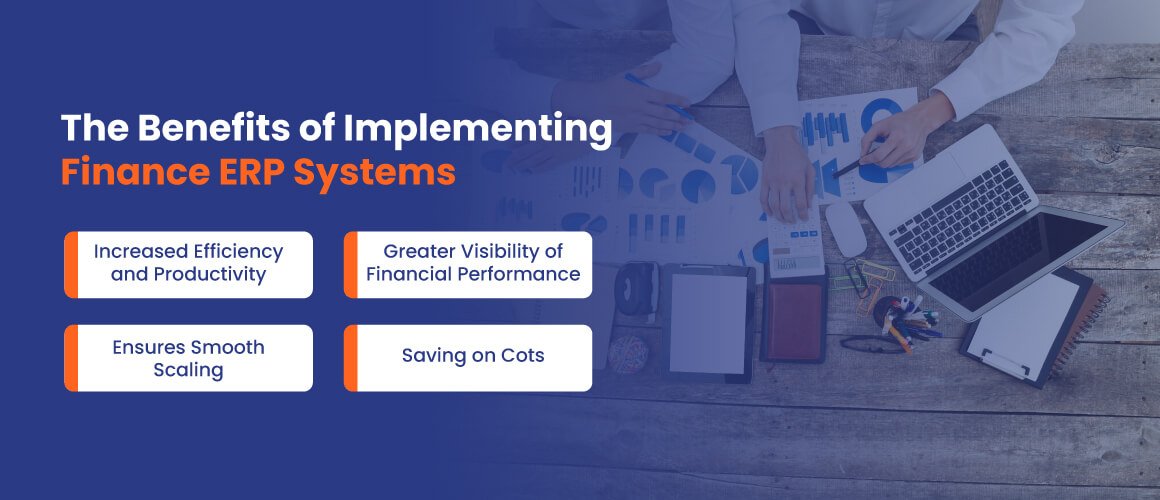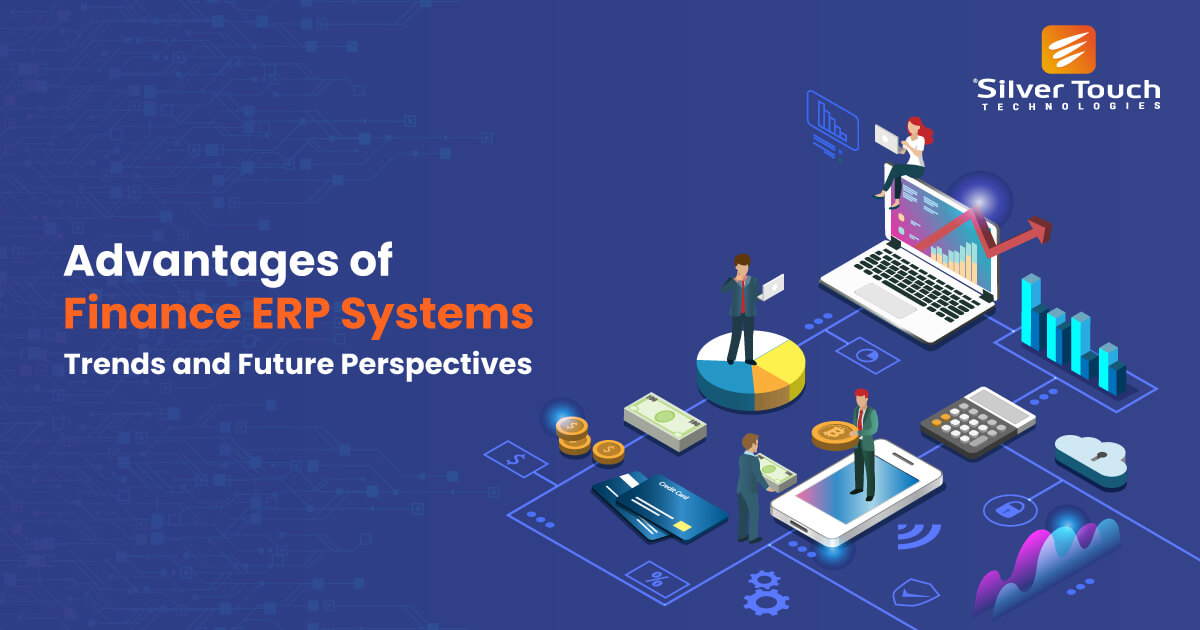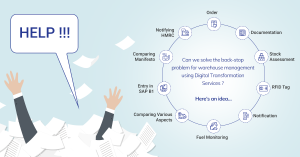We see daily that every successful corporate entity’s heart has always been controlling its finances. Nowadays, as companies grow bigger and expand on the international level, tools for managing the financial side of businesses have become more and more relevant. In the meantime, Finance ERP Systems are being introduced which fundamentally change the ways in which organizations organize their finances. In this blog post, we will focus on five aspects of finance ERP: explain its role, observe today’s trends, outline its pros, discuss limitations and speculate the future of the how finance will be managed.
What does Financial ERP Actually Is and How It Fits in The Business Today:
Simply put, a Finance ERP is an integrated software design that encompasses all the key activities of an organization in order to effectively oversee its financial end. Be it in accounting, budgeting, compliance or reporting, it is certain that ERP systems will accomplish these functions in the best possible manner.
What Are the Core Functions of Finances ERM that Distinguish Them from Any Other Business Application?
There is a problem with traditional finance systems in that they are often siloed; as a result, there are inefficiencies and potential mistakes that can occur. This issue is dealt with by finance ERPs which integrate a number of processes into one application, minimize the need to perform routine processes and supply the decision makers with up-to-date information.
The Role of CRM in Financial Services Marketing
Dealing with customers is a crucial part of every manager, and this is where CRM (Customer Relationship Management) comes in to play. Whenever a company implements ERP together with CRM, this enables better tracking of the various interactions with clients, portfolios, and financial requirements, which in turn assists in fulfilling customer needs better.
For those looking to see what an ERP system designed specifically for the financial sector could mean for their organization, Silver Touch Technologies has customized solutions that can be deployed for the financial services sector.
The Role of ERP in Financial Services
Managing finances is not just about dealing with numbers; it involves dealing with operations and processes while also adhering to specific guidelines. Here’s how ERP systems help:
Improved Compliance and Reporting
Due to the nature of its operations, compliance in this industry is mandatory. ERP systems reduce the complexities of compliance through automation, such as tax processes, audit processes and reporting. This prevents organizations from making mistakes during compliance and also ensures that organizations are compliant with changing legal frameworks.
Improved Budgeting and Planning
With both past and current data available to them, businesses should be able to be realistic in their targets and budgets. Organizations with ERP tools are able to develop proper spending patterns and avoid going beyond their budgets.
Customer-Oriented Structures Through Financial Services
We specifically note the integrated approach of organizations, CRM with ERP allowing a financial institution to propose a unique offer, of a client on the basis of his previous spending pattern and current preferences. Such approach encourages deeper bonds with the clients through the provision of special offers that are personalized to the client’s history.
As for the in-depth understanding of how the Enterprise Resource Planning System models within the delivery of financial services, visit Silver Touch Technologies to find tools that work in this context.
Future Directions of Evolution of Finance ERP Systems
The never-ending changes in the field of Enterprise Resource Planning (ERP) system lifecycle management make it important for any organization intending to stay competitive always to be on the lookout for such changes.
Cloud ERP Systems
The impact of the new paradigm shift in technology into the cloud has been nothing short of exceptional. Because cloud ERP systems are not restricted by costly IT infrastructure, businesses are given the opportunity to work with data from any location at any time.
Artificial Intelligence and Machine Learning
Modern ERP systems today has embraced artificial intelligence at the core of their operations. Using AI tools, intelligent systems are capable of performing automation, diagnosing problems, and creating prediction reports aiding in decision making.
Advanced Data Analytics
Data analysts are now able to combine advanced analytics with pre-existing ERP systems, allowing companies to interpret data, correlate data with relevant information, and use this knowledge to forecast with higher accuracy and precision.
Focus on Cyber Threat Prevention
In order to safeguard sensitive financial data during cyber-attacks, ERP solutions place a strong emphasis on incorporating encryption, two or more authentication methods, and data compliance to effectively address these issues.
In order to study these features in detail, Silver Touch Technologies presents modern ERP tools which fit these trends.
The Benefits of Implementing Finance ERP Systems

When it comes to installing ERP system, it may look like a costly investment, yet the returns it avails in the long run are astonishing.
Increased Efficiency and Productivity
Overhead activities such as resolution of discrepancies, reporting, and manual invoicing processes are minimised by an ERP system, hence giving room for focus on strategic activities.
Greater Visibility of Financial Performance
As data are constantly refreshed, higher-level employees are able to pull wide-ranging reports immediately, thus increasing responsiveness to market dynamics.
Ensures Smooth Scaling
Businesses can grow and the ERP system will accommodate whatever new teams or new locations are added for increased business throughput without any performance hindrance.
Saving on Cots
Due to the minimization of manual mistakes and optimal utilization of resources, the cost efficiency brought about by ERP systems tend to build up over a long period of time.
For small and medium-sized enterprises, the likes of which SAP Business One is able to serve their needs particularly well, are able to gain from such applications.
Challenges in Implementing Finance ERP Systems
In every context, there has never been a smooth sailing implementation task. Businesses have the following common challenges during the ERP phase:
High Initial Costs
The estimation of a return on investment (ROI) based on the time or costs that can be saved through operating on a single system is very positive, although the initial costs are quite high.
Integration Complexities
The integration of new processes with existing legacy systems and tools is a very challenging task requiring serious planning and technical knowledge.
Resistance to Change
Introducing a new system means breaking the already established flows with the organization and therefore, the need for proper change management tactics.
Data Migration Issues
Data already being used in the organization need to be imported into the ERP database which is a hefty exercise that requires attention to detail.
However, partnering with such experts as Silver Touch Technologies would less the challenges significantly.
What’s Next? Appreciating the Future of ERP in Finance
The advantage that ERP has now, and even in the future in the finance sector will be enormous. The evolution in the technology will ensure that ERP systems are sophisticated yet easier to use.
AI-Powered Predictive Financial Planning
Smart business ERP systems are going to be the reality and in the near future advanced systems dictated by the market will be controlling the business and doing the forecast.
Blockchain Concept
With the adoption of the blockchain concept, underlying financial transactions will be more secure and visible. This will rely on the reliability of the ERP systems.
Sustainability and Green Finance
In the future, there is a possibility that the ERP tools will come with modules that handle or addresses the achievement of sustainability targets.
Mobile and Remote Access
With the dynamics that hybrid work introduces, mobile-oriented designs will remain a core feature of ERP systems for the reason that financing will be able to be done anywhere.
Organizations that are ready to face such a transition in the future and outline a flexible framework should explore the options presented by Silver Touch Technologies.
Conclusion
Finance ERP systems are not just mere applications – they are pillars of the business that promote efficient functioning, compliance and decision making based on analytics. There may be bumps along the road of ERP adoption, but there is simply no denying the value once the few barriers are crossed.
When thinking about the future, it becomes apparent that businesses today that are willing to implement new innovations in ERP will not be spinning in circles in variety of complexities expected tomorrow. To start off on this transforming journey, go to Silver Touch Technologies for industry-specific ERP models that can improve your organizational structure and management of finances.





